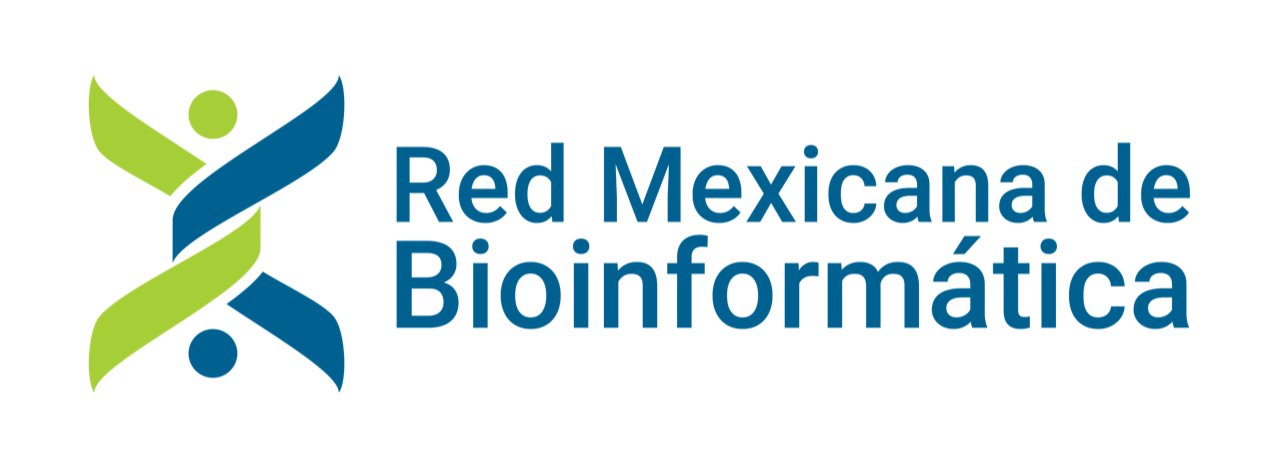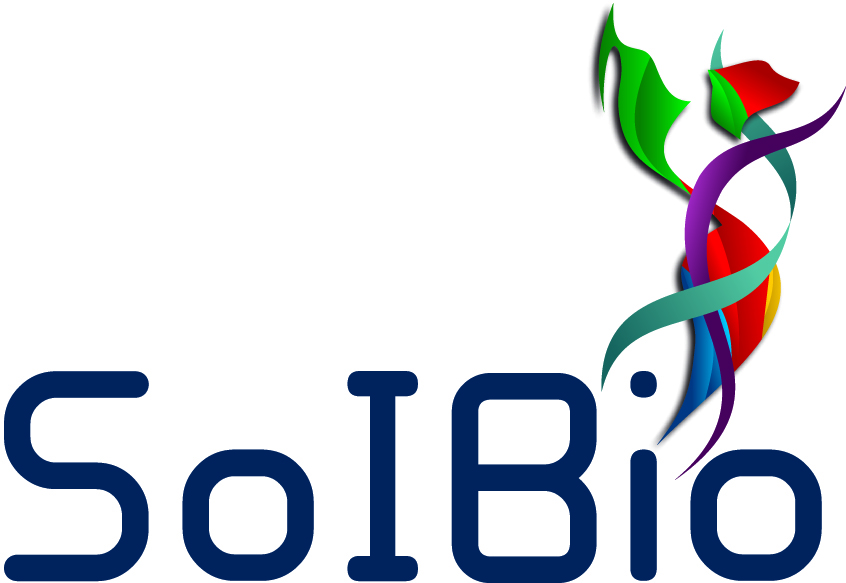ISCB Affiliated Groups
| CENTRAL and SOUTH AMERICA |
Contact: Marcelo Brandão (UNICAMP), President
<This email address is being protected from spambots. You need JavaScript enabled to view it.>
Geographical area included: Brazil
Leadership Structure: Composition of the Executive Board for the three-year term 2024/2026:
Marcelo Brandão (UNICAMP), President
Fabrício Martins Lopes (UTFPR), Vice President
Nicole Scherer (INCA), First Secretary
Ana Carolina Guimarães (Fiocruz/RJ), Second Secretary
Sávio Farias (UFPB), Treasurer
Helder Nakaya (Instituto Israelita de Ensino e Pesquisa Albert Einstein), Second Treasurer
Goals: AB3C began its activities in 2004 with the aim of bringing together students, researchers and enthusiasts in the context of bioinformatics. Since then it has promoted training courses and scientific events with the aim of disseminating science and promoting engagement in bioinformatics. AB3C is currently promoting the 20th edition of X-Meeting (https://www.x-meeting.com/events/), the main bioinformatics congress in Brazil.
Activities:
https://www.x-meeting.com/events/
Activities and programs that demonstrate the advancement of bioinformatics and computational biology:
AB3C develops several projects for the Bioinformatics community in Brazil, in particular the 21st edition of X-Meeting is scheduled to be held in the city of João Pessoa in northeastern Brazil between June 3 and 6, 2025 (https://x-meeting.com/events/2025).
Another relevant activity is the 'Vozes' project (https://site.ab3c.org.br/vozes-ab3c), which is a podcast with interviews with professionals and students in the context of bioinformatics to disseminate ideas, projects, and online discussions.
Last Updated January 31, 2025
Contact: Yalbi Itzel Balderas Martínez
This email address is being protected from spambots. You need JavaScript enabled to view it.
tel: +52 777 2238266.
Geographical area included: Mexico
Leadership Structure: Dr. Irma Martínez-Flores, president
Dr. Yalbi I. Balderas Martínez, secretary
Dr. Gerardo Corzo, treasurer
Dr. Nelly Selem, conferences organization node leader
Dr. Julio Collado, honorific member
MSc. Shirley Alquicira, administration
MSc. Dulce Valdivia, membership node leader
BSc. José Ovando, students node leader
Dr. Mirna Vasquez, BSc. Luis Meza, membership assistant
Dr. Michael Jeziorsky, Dr. Raúl Baptista, Dr. Selene Fernández Valverde, MSc. Alfredo Hernández courses organizer
Dr. Joselyn Chavez, CDSB organizer
MSc. Jair García, social network manager
Dr. Alejandra Medina, Dr. Alfredo Varela, MSc. César Bonavides, Founder member
Goals: The BioNetMX emerged in 2018 as the interests of a group of scientists to unify the different groups doing bioinformatics in the country. The formalization of the network became real in July of that year with the participation of students and junior and senior researchers.
The BioNetMX has as a mission to foster the development and expansion of the bioinformatics culture in Mexico, under ethical principles of collective and organized interaction, and the vision to become a model for collaboration in bioinformatics that can be imitated by other networks in Mexico and Latin America.
Activities:
Week-long workshops collaboration:
TIBS 2023: Ensamble y anotación de metagenomas May 2-4, 2023 - Dr. Luis Lozano
Taller: Introducción a Rsudio. Encuentro Nacional de Bioinformatica. Aug 7-11, 2023. Dr. Leticia Vega, MSc. Veronica Jimenez
CDSB 2023: Creando paquetes de R bioconductor para análisis transcriptomicos de célula única. Aug 7-11, 2023. Dr. Joselyn
Chávez, Dr. Mirna Vazquez, MSc. Erick Cuevas, Dr. Leonardo Collado, Sr. Alejandra Medina, Dr. Yalbi Balderas
Conferences:
“Bioinformática y aplicaciones prácticas para el análisis de datos biológicos”, May 2-4, 2023
Activities and programs that demonstrate the advancement of bioinformatics and computational biology:
Collaborations (UUSMB, CDSB, NNB-CCG, Rladies México)
Last Updated September 20, 2024
Contact: Dr. Javier De Las Rivas
Bioinformatics and Functional Genomics Group
Cancer Research Center (CiC-IBMCC, CSIC/USAL)
Campus Miguel de Unamuno s/n
E37007 - Salamanca - SPAIN
tel: 34 923 294819
This email address is being protected from spambots. You need JavaScript enabled to view it.
Geographical area included: IberoAmerica (22 countries): Argentina, Bolivia, Brazil, Chile, Colombia, Costa Rica, Cuba, Dominican Republic, Ecuador, El Salvador, Guatemala, Honduras, Mexico, Nicaragua, Panama, Paraguay, Peru, Portugal, Puerto Rico, Spain, Uruguay, Venezuela
Leadership Structure: • Executive Board (4 members: President, VicePresident, Secretary, Treasurer)
• Delegates for each country (at present 12 members)
• Members of different Committees:
- Admissions and Membership Committee
- Education and Training Committee
- Outreach Committee
- Scientific Collaboration Committee
- Infrastructure Committee
- Foreign Relations Committee
- Students Committee
Goals: See: http://wp.soibio.org/
SoIBio (Iberoamerican Society for Bioinformatics) is an international scientific society, founded in 2009 following the previous work and experience of the RIB (Iberoamerican Network for Bioinformatics) which was, from 2002 to 2008, a joint collaborative project of several research groups from Iberoamerica working in the new field of Bioinformatics and Computational Biology.
SoIBio aims to promote research and development on Bioinformatics in the large international region of Iberoamerica. As such it looks to help either individuals or national societies or groups that want to work in this field, both at academic and professional level. To do so, SoIBio facilitates transnational exchange, collaboration, formation and development for issues and topics related to Bioinformatics and Computational Biology. It is also a platform to interact and collaborate with other international societies and networks that work in the same field: European Molecular Biology Network (EMBnet); Asian-Pacific Bioinformatics Network (APBioNet); International Society for Computational Biology (ISCB).
SoIBio is open to all, either from the academic or the professional world, interested in promoting research and development of Bioinformatics in Iberoamerica. To become a member, the only requirements are the support of one or two members of SoIBio and to fulfill the registration in this website. A small fee is asked to academic or professional staff. The registration as a member is free for students and postdoctoral people.
At present SolBio is an Affiliated Regional Group of ISCB (International Society of Computational Biology) and has actively participated in the organization of the last ISCB-LA Meetings (in 2012, 2014, 2016, 2018, 2020 and 2022). SolBio is also a member of GOBLET (Global Organisation for Bioinformatics Learning, Education & Training).
Activities:
• 2009 Puerto Morelos, MEXICO: ("Fundación de SoIBio", joint with EMBnet) Fundation Conference (October 26-29, 2009).
• 2010 Termas de Chillán, CHILE: 1st SoIBio Bioinformatics International Conference (September 26-28, 2010).
• 2011 Florianopolis, BRAZIL: 2nd SoIBio Bioinformatics International Conference (October 12-15, 2011).
• 2012 Santiago, CHILE: First Joint Conference with ISCB-LA 2012, 3rd SoIBio Conference (March 17-21, 2012).
• 2013 Rosario, ARGENTINA: 4th SoIBio Bioinformatics International Conference (October 29-31, 2013).
• 2014 Belo Horizonte, BRAZIL: Joint Conference with ISCB-LA 2014, 5th SoIBio Conference (October 28-30, 2014).
• 2016 Riviera Maya, MEXICO: (IC fully organized by SoIBio, delayed from 2015) 6th SoIBio Conference (April 22-26, 2016).
• 2016 Buenos Aires, ARGENTINA: Joint Conference with ISCB-LA 2016, 7th SoIBio Conference (November 21-23, 2016).
• 2017 Cali, COLOMBIA: 8th SoIBio Bioinformatics International Conference (September 13-15, 2017).
• 2018 Viña del Mar, CHILE: Joint Conference ISCB-LA SoIBio EBMnet 2018, 9th SoIBio Conference (November 5-9, 2018).
• 2019 Montevideo, URUGUAY: 10th International Conference on Bioinformatics #SoIBio+10 (October 28 - November 1, 2019).
• 2020 Virtual Symposium: ISCB-LA SoIBio BioNetMX 2020, Oct 28-29, (run from MEXICO, only online due to COVID-19).
• 2022 Queretaro, MEXICO: ISCB-Latin America SoIBio BioNetMX Joint Conference on Bioinformatics, 12th SoIBio (November 3-7, 2022).
• 2023 Rosario, ARGENTINA: SoIBio & A2B2C + RIABIO, International Conference on Bioinformatics and Artificial Intelligence applied to Big BioData, 13th SoIBio (30.October-3.November, 2023).
• 2024 Medellin, COLOMBIA: SoIBio + ISCB + CCBCOL, ISCB-Latin America SoIBio CCBCOL International Conference on Bioinformatics 2024, 14th SoIBio (12-15.November 2024).
Activities and programs that demonstrate the advancement of bioinformatics and computational biology:
• 2025: SoIBio joint venture with the Associação Brasileira de Bioinformática e Biologia Computacional (AB3C, https://site.ab3c.org.br/) to participate in the Congresso Brasileiro de Bioinformática 2025, in João Pessoa - Paraíba - BRAZIL (June 2025): https://www.even3.com.br/xmeeting-2025/
• 2026: SoIBio & ISCB-LatAm 2026, International Conference on Bioinformatics, to be held in COSTA RICA or in PERU (to be decided) in October 2026.
These events will be announced in:
https://www.iscb.org/
http://wp.soibio.org/
Last Updated July 01, 2025





